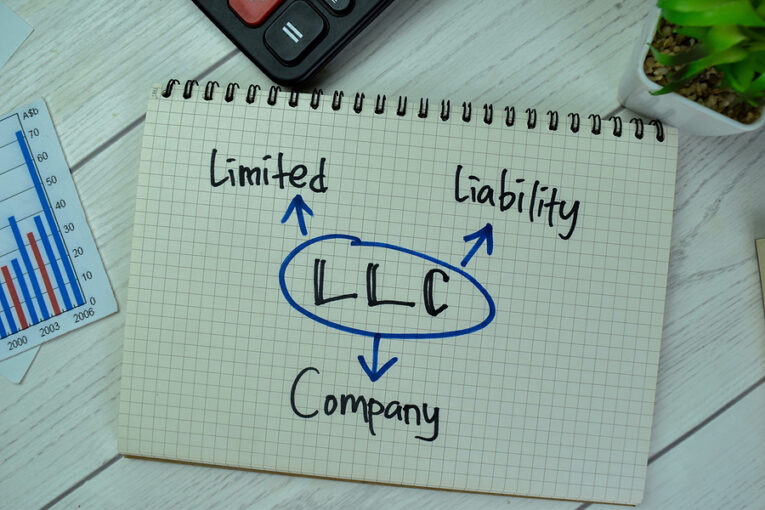Importance of choosing the right business structure
Selecting the appropriate business structure is crucial for several reasons. First, it impacts the extent of personal liability you may have for the company’s debts and legal obligations. Second, it influences the tax treatment of your business and the potential benefits or drawbacks associated with different tax structures. Lastly, it determines the ownership and management structure of your business, including how decisions are made and how the company can raise capital.
Key Takeaways
- Liability protection is a major consideration. Both LLCs and corporations provide liability protection, but corporations tend to offer stronger protection.
- Tax implications differ. LLCs provide pass-through taxation, while corporations are subject to double taxation unless they elect S-Corp status.
- Ownership structure is more flexible with LLCs compared to corporations.
- Corporations can potentially raise capital more easily by issuing stock.
- LLCs have fewer formalities and paperwork requirements than corporations.
- Corporations may have greater credibility with customers, suppliers, etc.
- Professional advice can be invaluable when deciding which structure to choose based on your specific circumstances.
Overview of LLCs and Corporations
Let’s take a closer look at these two common business structures: the limited liability company (LLC) and the corporation.
An LLC is a flexible business structure that combines elements of a corporation and a partnership. It provides its owners, known as members, with limited liability protection. This means that the member’s personal assets are generally protected from the company’s debts and legal liabilities. LLCs also offer pass-through taxation, where the business’s profits and losses are reported on the owners’ personal tax returns, avoiding double taxation. For more information on how to start a small business, check out our article on how to start a small business.
On the other hand, a corporation is a separate legal entity from its owners, known as shareholders. This structure offers limited liability protection to its shareholders, shielding their personal assets from the company’s debts and legal obligations. Corporations can issue different classes of stock, allowing for easy transfer of ownership and the potential to raise capital through the sale of shares. Additionally, corporations have the option to choose different tax treatments, such as S-Corporation or C-Corporation status, which can have significant implications for taxation. If you’re interested in learning more about different types of business entities, check out our article on types of business entities.
Limited Liability Company (LLC)
One of the key characteristics of an LLC is its flexibility in terms of ownership and management. Unlike corporations, LLCs can have multiple owners, known as members, who can be individuals, partnerships, corporations, or other LLCs. This allows for greater diversity and flexibility in the ownership structure of the business. Additionally, an LLC can be managed by its members, known as a member-managed LLC, or by appointed managers, known as a manager-managed LLC.
Another important characteristic of an LLC is the limited liability protection it offers to its owners. This means that the personal assets of the members are generally protected from the debts and liabilities of the business. In the event of legal disputes or financial obligations, the member’s personal assets are shielded, providing an extra layer of protection.
Advantages of Forming an LLC
Forming an LLC offers several advantages for business owners. Some of the key advantages include:
- Limited Liability: As mentioned earlier, one of the primary benefits of an LLC is the limited liability protection it provides. This means that members are generally not personally responsible for the debts and obligations of the business, protecting their personal assets from business-related risks.
- Flexible Taxation: LLCs have the flexibility to choose how they are taxed. By default, an LLC is treated as a pass-through entity for tax purposes. This means that the profits and losses of the business are reported on the member’s individual tax returns, avoiding the double taxation often associated with corporations. However, LLCs also have the option to elect to be taxed as corporations if that aligns with their financial goals.
- Simplified Compliance: Compared to corporations, LLCs typically have fewer formalities and ongoing compliance requirements. This can make the administrative burden of running an LLC more manageable, especially for small businesses or first-time business owners.
Disadvantages of forming an LLC
While LLCs offer many advantages, there are also a few disadvantages to consider:
- Self-Employment Taxes: Unlike corporations, where only the salaries of employees are subject to self-employment taxes, all profits of an LLC are generally subject to self-employment taxes. This means that members of an LLC may be responsible for paying both the employer and employee portions of Social Security and Medicare taxes.
- Limited Life Span: In many jurisdictions, an LLC’s life span is typically limited and is dependent on the terms of the operating agreement or the resignation of a member. If a member leaves or dies, the LLC may need to be dissolved or restructured according to the laws and regulations of the jurisdiction.
- Perception and Credibility: In some industries, corporations may be perceived as having more credibility and professionalism compared to LLCs. This perception may vary depending on the industry and the target market, but it’s worth considering when choosing a business structure.
Corporation
A corporation is a legal entity that is separate from its owners, known as shareholders. It is formed by filing the necessary documents with the appropriate state authorities. Once established, a corporation has its own rights and responsibilities, enabling it to conduct business, own assets, enter into contracts, and sue or be sued.
Key characteristics of a corporation include:
- Limited Liability: One of the primary advantages of a corporation is that it provides limited liability protection to its shareholders. This means that the personal assets of shareholders are generally protected from the debts and liabilities of the corporation.
- Perpetual Existence: A corporation has a perpetual existence, meaning it continues to exist even if the shareholders or directors change over time. This allows for continuity and stability in the business.
- Separate Legal Entity: A corporation is considered a separate legal entity from its shareholders. It can enter into contracts, acquire assets, and take legal actions in its own name.
- Ownership through Shares: Shares of stock serve as a proxy for ownership in a corporation. Shareholders own shares based on their investment in the corporation, and their rights and responsibilities are outlined in the corporation’s bylaws.
Advantages of Forming a Corporation
Forming a corporation offers several advantages:
- Limited Liability Protection: Shareholders are typically not personally liable for the debts and obligations of the corporation. Their liability is generally limited to the amount they have invested in the corporation.
- Access to Capital: Corporations have increased opportunities to raise capital by issuing stocks and attracting investors. This can facilitate business growth and expansion.
- Enhanced Credibility: Operating as a corporation can enhance credibility and professionalism, which may be appealing to customers, suppliers, and potential business partners.
- Tax Flexibility: Corporations have flexibility in structuring compensation for owners and employees, potentially allowing for certain tax benefits.
Disadvantages of forming a corporation
While a corporation offers numerous advantages, there are also some potential drawbacks:
- Complexity and formalities: Compared to other business structures, corporations require more formalities and paperwork to establish and maintain. This includes filing articles of incorporation, holding regular meetings, and maintaining proper corporate records.
- Double Taxation: One significant disadvantage of a corporation is its potential for double taxation. The corporation itself is subject to corporate income tax, and if dividends are distributed to shareholders, they are taxed again on their personal tax returns. However, certain types of corporations, such as S corporations, can avoid double taxation.
- Higher Costs: The costs associated with setting up and maintaining a corporation can be higher than those associated with other business structures. This includes filing fees, legal fees, and administrative expenses.
Factors to consider
When deciding between a limited liability company (LLC) and a corporation for your business, there are several important factors to consider. These factors include liability protection, tax implications, and ownership and management structure.
Liability Protection
Both LLCs and corporations offer liability protection to their owners. This means that the owner’s personal assets are generally protected from the debts and liabilities of the business. However, the extent of this protection can vary between the two business structures.
In an LLC, owners, known as members, enjoy limited liability protection. This means that their personal assets are shielded from the financial obligations and legal actions of the LLC. However, it’s important to note that this protection is not absolute, and certain circumstances can result in the “piercing of the corporate veil,” thus exposing members to personal liability.
On the other hand, a corporation provides strong liability protection to its shareholders. Shareholders’ personal assets are typically separate from the corporation’s debts and liabilities, offering a higher level of protection. However, it’s worth noting that certain actions, such as fraud or illegal activities, can still hold shareholders personally liable.
Tax Implications
Tax implications are an important consideration when choosing between an LLC and a corporation. Both business structures have different tax treatments, which can impact the amount of taxes paid by the business and its owners.
LLCs have a more flexible tax structure. By default, they are considered “pass-through” entities for tax purposes. This means that the profits and losses of the business are passed through to the members, who report them on their personal tax returns. This avoids double taxation, as the business itself does not pay federal income taxes.
Corporations, on the other hand, are subject to double taxation. They are taxed at the corporate level, and then the shareholders are taxed on the dividends they receive. However, corporations can choose to be treated as an S corporation, which allows them to pass through profits and losses to shareholders, similar to an LLC. This can provide tax advantages, but there are specific eligibility criteria that must be met.
Ownership and management structure
Ownership and management structure are other factors to consider. LLCs offer more flexibility in terms of ownership and management. They can have a single member or many members, and the members can decide how to divide the ownership interests. The management structure can also be flexible, with members managing the company or designating managers to handle day-to-day operations.
Corporations, on the other hand, have a more rigid ownership and management structure. Owners are shareholders, who choose a board of directors to manage the business. The board of directors then appoints officers to manage the corporation’s daily operations. This structure is more suitable for businesses with a larger number of owners or those planning to seek external investment.
Seeking professional advice
Navigating the complexities of business formation can be challenging, especially for first-time business owners. Seeking professional advice from a business attorney or a qualified accountant can provide invaluable guidance in making the right choice.
An experienced professional can assess your unique circumstances, explain the legal and tax implications of each business structure, and help you understand the advantages and disadvantages. They can also assist with drafting essential documents, such as operating agreements for an LLC or bylaws for a corporation, to ensure compliance with local laws and regulations.
Registering your chosen business structure
Once you have made an informed decision on the appropriate business structure for your venture, the next step is to register it with the relevant authorities. The process for registering an LLC or corporation varies by jurisdiction, so it’s important to consult the appropriate governmental agency or seek professional assistance to ensure compliance with local regulations.
Remember, starting a business is a significant undertaking, and choosing the right business structure is an essential part of the process. By carefully assessing your business needs, seeking professional advice, and registering your chosen structure, you can lay a solid foundation for your new venture. For more information on starting a small business, check out our article on how to start a small business.
FAQs
The main difference between an LLC (Limited Liability Company) and a corporation is how they are taxed and the level of liability protection they offer. In an LLC, the owners (known as members) report business income on their personal tax returns, while in a corporation, the business is a separate legal entity that files its own tax return.
The answer depends on your specific business needs and goals. Generally, an LLC is more flexible in terms of management and has simpler compliance requirements. On the other hand, a corporation offers a more formal structure, making it easier to attract investors and raise capital.
Forming an LLC provides limited liability protection, meaning your personal assets are protected in the event of business debts or lawsuits. Additionally, an LLC offers flexibility in terms of management and profit distribution and is not subject to corporate income tax.
To form an LLC, you need to choose a unique business name, file the necessary paperwork with the state, and pay the required fees. It is recommended to consult with a business attorney or use an online formation service to ensure proper compliance with all legal requirements.
Forming a corporation provides limited liability protection to the owners (known as shareholders), meaning their personal assets are separate from the business liabilities. Additionally, a corporation offers structure and credibility, making it easier to attract investors and raise capital.
Deciding between a corporation and an LLC depends on factors such as your business goals, the level of liability protection required, and the desired tax structure. Consulting with a business attorney or a tax professional can help you make an informed decision based on your specific circumstances.
In an LLC, the business income is typically passed through to the members, who report it on their personal tax returns. In a corporation, the business files its own tax return and pays corporate income tax on the profits. Shareholders of a corporation may also be subject to personal income tax on dividends received.
Yes, as an LLC member, you are responsible for paying personal income taxes on your share of the business profits, even though the business itself is not subject to corporate income tax.
An LLC provides limited liability protection, meaning the members’ personal assets are generally protected from the business’s debts and legal obligations. However, it is important to note that certain actions, such as personal guarantees or intentional wrongdoing, can pierce the LLC’s liability protection.
Yes, an LLC can choose to be taxed as an S corporation by filing Form 2553 with the IRS. This allows the LLC to receive the tax benefits of an S corporation, such as pass-through taxation and the avoidance of self-employment taxes on a portion of the profits.





